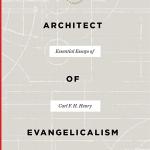This post is part of a series walking through the third volume of Abraham Kuyper’s Common Grace
Moving into another chapter on the family (the fifth so far, for those counting), Kuyper notes that the stricter sense of the term “Christian family” is when the head of the family “confesses the Christ and correspondingly is responsible for the place of religion in his house.” (370) In this sense the family becomes more Christian as others in the family also confess the faith. But the head remains central–though of course we see a spectrum of approaches that give more or less honor to God. (More than one “head,” the wife or one of the children usurping the husband’s role as “head”–and Kuyper is quite clear that it is to be the husband who is the head of the family.)
But what is the “head” of the family? In the Christian family, the head is “the God-appointed family priest.” If the father for some reason is incapacitated, then the role falls to the mother, then the eldest child, then the maidservant, etc. This is what we do with financial affairs, and because it is what God has established with worship it’s what we should do with regard to religion as well. (Kuyper is not saying that because we do this with money we should do so religiously as well, he’s merely using an example.) I should note that Kuyper provides no Scriptural support for his argument (and the snarky part of me would further note that’s because there is no Scriptural support for such a priestly role for the father of a family, but I’ll leave that out for now). Inability does not offset responsibility–Kuyper is clear that if the father is rubbish at extemporaneous prayer, he should use a scripted one. If he’s no good at reading, he should practice beforehand. Etc. He should lead systematically and well. Doing all of these things fulfills–but does not add to–the order of nature. (372)
The family does not replace the church, though it does strengthen the assembly by undermining individualism and reminding us of the corporate nature of worship. Also, it can “serve to fill a lacuna if a church fellowship is broken down to such an extent that true believers are forced outside it.” (373) Of course we all recognize the truth here in our post-Covid shutdown world… The Divine order of the family also helps us see the order of the church, rather than being a random jumble of people choosing to come together it is an orderly institution with rules and processes that help it to function as it should. (373)
Obviously there are still problems with the family because of sin. What if the head of the family is Roman Catholic, or part of another religion? Or even just a member of a different denomination? Non “mixed” marriages have problems too–what if one is serious about their faith and the other isn’t? What if the children are rebellious and walk away from the faith? [Kuyper gives a list of potential failures that tend to these ends, unfortunately too often assuming that a simple-yet-strict application of proper authority would have been the solution. Obviously this is overly simplistic, particularly if we assume that the default setting for children is that they are unregenerate–because they are unregenerate.]
We must live well first within the home, not being more gracious to others than we are to our family. And Kuyper tells us how:
“…when people believe and confess together, their faith imposes certain obligations: for example, to take care of one another; to exhort one another tenderly and earnestly; to strive for Christian fellowship in the context of daily contact, conversation, and cooperation; and to do good and what accords with true faith and love. We are to carry one another in our hearts, inform and support one another spiritually, and thus steadily contribute to one another’s spiritual advancement in Christ.” (376)
This should be done first with regard to the family, though unfortunately we all too often do this with friends and acquaintances rather than with those to whom we are most closely obligated.
All this to say that the Christian family is a family in contrast with 1) pagan families; 2) secular families; and 3) culturally Christian families who live a “dead-orthodoxy” (376-377).
More on the family next time.
Dr. Coyle Neal is co-host of the City of Man Podcast an Amazon Associate (which is linked in this blog), and an Associate Professor of Political Science at Southwest Baptist University in Bolivar, MO












